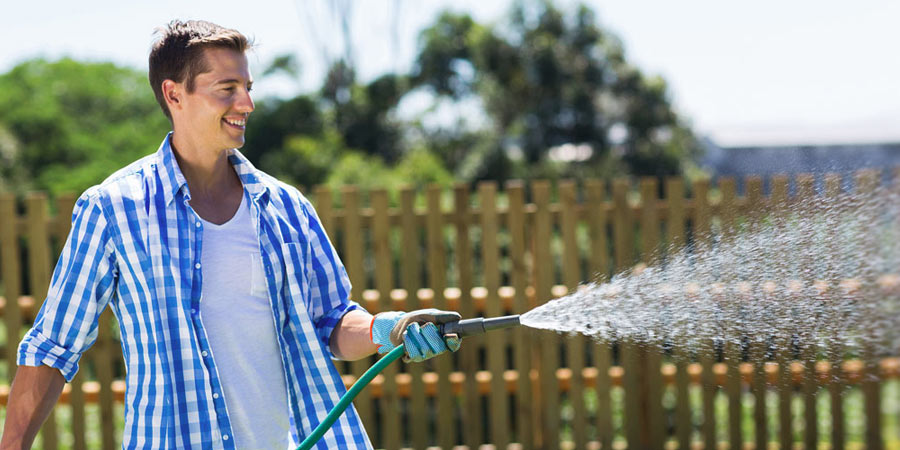
The design of your garden can have a big impact on the amount of water it uses. Our friends from Water Wise Grass are used to working in drought-prone areas, and have offered us 5 smart landscaping choices that will help reduce water consumption.
Water is a crucial element to keep landscapes looking alive and healthy. However, there are certain times during the year when rainfall is scarce. In such events it is necessary for homeowners to turn up their faucets and sprinklers to give their landscape the refreshment it needs. However, this can be quite a problem when the water bill comes. It is quite fortunate that there are ways to keep landscapes water-efficient. Not only do these help save hard-earned money, it also helps conserve one of the most important elements on the planet: water.
Opt for fake grass
Lawns need to be well-cared for to keep it looking lush and green. Artificial grass is becoming such a trend, especially in drought-stricken areas, because of its tremendous water-efficiency. Because it is not real grass, it does not require any watering at all. Also, synthetic grass is designed to have an effective drainage system underneath to control and reuse storm runoff. It stays green and beautiful all year round, with little maintenance required.
Native plants
Plants that are native to an area are used to the climate, so it does not need to adjust very much, whether it rains or not. If you are living in an area where rain is scarce, expect the native plants to be thriving but less demanding of water. Also, they are resistant to most pests or bugs in the area.
Plant in groups
Planting in groups minimizes the need to water various areas on a landscape. When similar plants are grouped together, you just have to water that area and the plants can share the water they get. If you have different types of plants, sort them by the amount of water they need to thrive. Not only will you be cutting the time you spend on watering your plants, you also use less water and save on your bill.
Use mulch
Some homeowners are not very keen about mulch but it can be tremendously helpful when it comes to conserving water. Mulch helps keep soil cool while slowing down the water evaporation process. This means you don’t have to water as often as you usually do during warm climate. This, however, requires regular replacement, be it organic or inorganic.
- Organic Mulch – Bark chips, compost, pine needles
- Inorganic Mulch – paper, pebbles, rocks
Avoid steep slopes
Having flat, even landscapes makes it easier to water. Also, water does not run off to the bottom and instead, stays where they fall and are being absorbed. With slopes, water tends to flow down to the bottom most part, all thanks to gravity. This means plants or grass at the top of the slope will have less access to it. However, if slopes cannot be avoided, at least keep its steepness level to a minimum.
